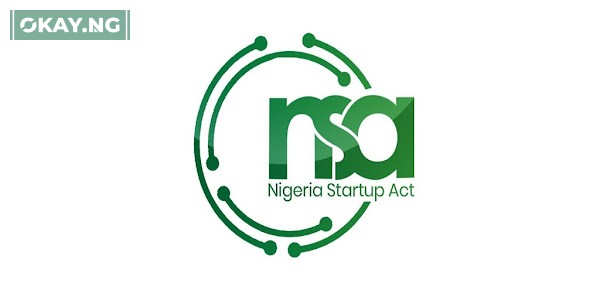The National Information Technology Development Agency (NITDA) has taken a significant step towards driving the implementation of the Nigeria Startup Act (NSA) with the inauguration of a Startup Labelling Committee.
This pivotal committee, inaugurated by NITDA Director-General Kashifu Inuwa CCIE, includes representatives from both the public and private sectors.
The NSA, enacted on October 19th, 2022, established a legal and institutional framework to foster the development and growth of Nigerian startups.
A critical provision within the Act is the Startup Label, which recognizes eligible startups, granting them access to various benefits outlined in the NSA.
The issuance of the Startup Label hinges on a thorough assessment and validation process to ensure a startup meets the eligibility criteria as defined by the Act.
The newly formed committee will play a crucial role in overseeing this process.
In his address at the inauguration ceremony, Inuwa emphasized President Bola Ahmed Tinubu’s administration’s unwavering dedication to fostering an environment conducive to the growth and success of young Nigerian innovators.
He acknowledged the pivotal role startups play in propelling the nation’s economic development and the significance of the committee’s work in nurturing and supporting these enterprises.
He elaborated on various initiatives and support mechanisms the government plans to implement, aimed at reducing hurdles and providing financial assistance and mentorship opportunities to young entrepreneurs.
Inuwa expressed optimism about the future, asserting that with the right support, these budding innovators could transform their ideas into thriving enterprises, thus contributing significantly to job creation and the overall economic prosperity of Nigeria in line with President Tinubu’s priority to “reform the economy to deliver sustained inclusive growth.”
Inuwa urged stakeholders to join hands in creating a robust ecosystem that would empower the next generation of entrepreneurs to flourish and contribute to the country’s progress.
He added that the committee will be instrumental in establishing a robust legal and institutional framework for the successful implementation of the Startup Act. Their collaborative efforts will ensure a participatory approach that benefits all stakeholders within the Nigerian startup ecosystem.
“The composition of the committee reflects the emphasis on collaboration. Representatives from government agencies, industry experts, investors, and startup founders will bring their diverse perspectives and experiences to the table. This collaborative approach is expected to lead to a more efficient and effective labelling process, ultimately benefiting the growth of Nigerian startups,” he stated.
Speaking on the roles and responsibilities of the committee, Victoria Fabunmi, National Coordinator of the Office for Nigeria Digital Innovation, outlined the terms of reference, which include:
- Reviewing and evaluating startup applications for the label based on criteria defined in the Act and any additional criteria that may ensure quality for the label.
- Periodically reviewing and updating additional labelling criteria to ensure alignment with industry trends.
- Conducting impartial evaluations of submitted applications for the Startup Label.
- Recommending issuance or otherwise of the Startup Label based on defined criteria.
- Providing feedback and recommendations on areas of improvement for rejected applications.
- Engaging startups for more clarity/details on information provided, if necessary.
- Periodically reviewing previous activities and data on labelling to identify/recommend opportunities and gaps that policymakers may need to emphasize.
- Reviewing workload capacity and recommending a fair ceiling for the number of applications to be considered per period.
- Adhering to a Code of Conduct, which all members must sign prior to commencing duties.
The Labelling Committee comprises nine members: four representatives of incubators (ISN Rep, North and South), two representatives of the public sector (NITDA, NSIA), two representatives of civil society, and a portal coordinator serving as secretary.
The inauguration of the Startup Labelling Committee marks a significant milestone in the implementation of the Nigeria Startup Act.
With a multi-stakeholder committee guiding the process, the Act has the potential to unlock the immense potential of Nigeria’s startup ecosystem and contribute significantly to the nation’s economic development.









